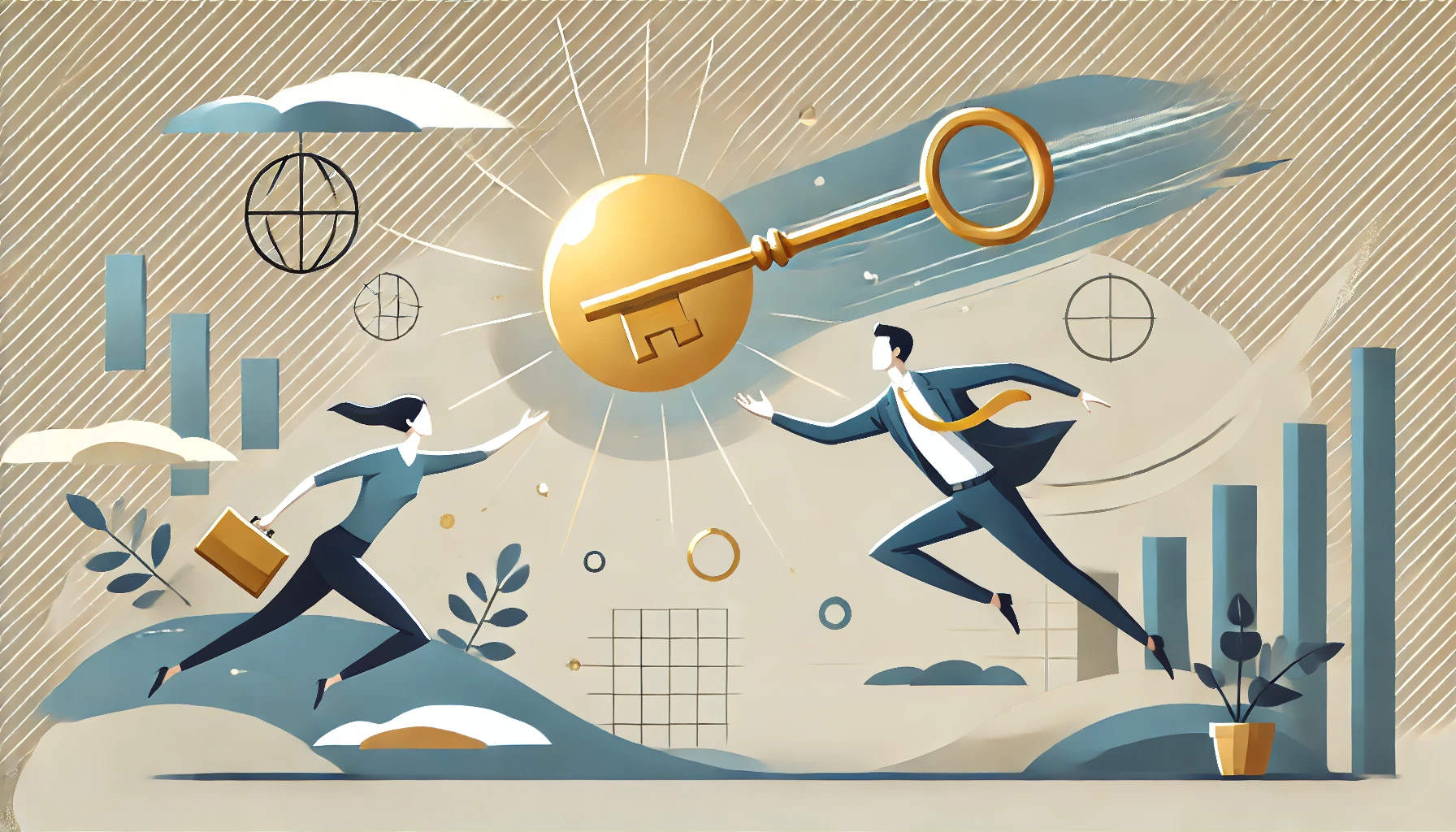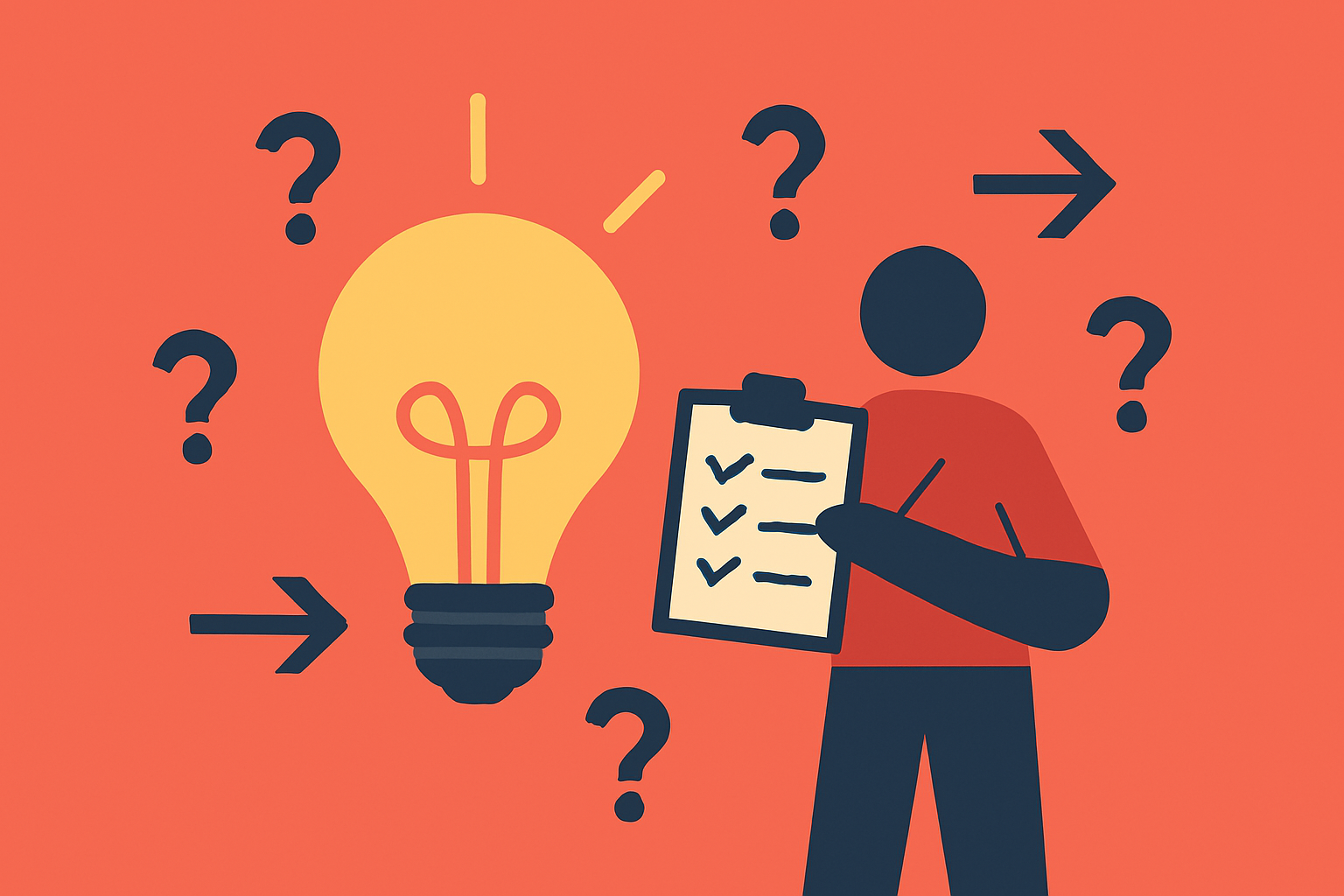
Click the button to start reading
Why Critical Thinking is the #1 Skill Employers Look For in 2025
Picture yourself standing at the doorway of 2025, scanning job listings that all emphasize one indispensable trait: critical thinking.
You read on and see that hiring managers across industries—from tech startups to multinational corporations—are hungry for professionals who excel at analyzing information, evaluating complex challenges, and proposing creative yet logical solutions.
You might wonder why critical thinking is suddenly in such high demand.
The reality is that rapid changes in technology, heightened competition, and unpredictable economic shifts have made this skill an absolute must-have.

Facing the Fast-Changing Workplace
Global markets and organizational structures have been evolving at breakneck speed. New roles appear faster than ever, driven by artificial intelligence, data analytics, and other emerging technologies.
With more data and potential strategies to evaluate, you’re expected to discern signal from noise.
That’s where critical thinking steps in to save the day. It’s not just about accumulating knowledge; it’s about knowing how to analyze that knowledge, spot inconsistencies, and propose actionable improvements.
Employers appreciate it when you can handle a barrage of competing priorities and still find the most logical path forward.
The more unexpected the market disruptions, the higher the demand for individuals who can tackle them in a systematic yet flexible manner. Critical thinking isn’t a niche ability reserved for strategists or analysts.
Instead, it’s a requirement that extends into virtually every field, from nursing and education to engineering and marketing.
Each environment puts you in situations where data, deadlines, and decisions all compete for attention. With a strong grounding in critical thinking, you’re equipped to handle these challenges calmly and confidently.
Think of critical thinking as a safety net that stops you from plunging into knee-jerk decisions.
When you’re able to question assumptions, research facts, and see patterns clearly, you’re far less likely to rush down a dead-end path.
This advantage is exactly why employers hold it in such high regard—and why you should make it a cornerstone of your professional development.
The Core of Critical Thinking
Critical thinking comes down to a multifaceted approach that involves observation, interpretation, analysis, and evaluation.
When you practice this skill, you sharpen your ability to ask the right questions. You learn to gather relevant information, assess both qualitative and quantitative data, and weigh different outcomes.
The result is a confident, systematic mindset that guides you through even the toughest scenarios.
You don’t have to be a genius to excel at critical thinking. Instead, focus on being open-minded and analytical.
When you sit down to solve a problem, start by identifying what you already know and what you need to find out.
Then dive deeper. Consult reputable sources, tap into experiences, or even run small tests to gather more insights. From there, break the information into smaller parts, look for patterns or contradictions, and analyze possible solutions.
This deliberate process helps you see beyond your own perspective and guard against biases, whether personal or organizational.
Additionally, the most capable critical thinkers never stop refining their skills. They question existing processes, challenge the status quo, and stay inquisitive.
Rather than settling for a simple answer, they seek root causes or underlying principles. Your goal is to be that person who doesn’t just settle for obvious solutions.
You want to embrace trial and error and learn from every success and misstep. That restless curiosity sets you apart, especially in a 2025 workplace where rapid change can make yesterday’s best practices obsolete.

Why Employers Value Critical Thinkers
Employers aren’t lining up to hire critical thinkers by accident.
There’s a direct payoff when team members can parse complex situations and choose the most effective course of action.
By offering solutions that save time, cut costs, and boost efficiency, you become an indispensable asset.
You’re not just following instructions or performing routine tasks; you’re adding strategic value that helps your organization stay ahead.
When you exhibit strong critical thinking skills, you’re better at identifying risks before they morph into crises.
In an era of shrinking timelines and tight budgets, you don’t want your team scrambling at the last minute to recover from avoidable setbacks. Critical thinking gives you a proactive edge.
You can present your manager with insights that preempt potential pitfalls, steering the project toward more stable outcomes.
On top of that, your ability to dissect challenges, suggest fresh angles, and evaluate potential outcomes is huge for collaboration.
When you share this skill with a group, you encourage everyone to aim higher. Brainstorming sessions become more vibrant, deliverables improve, and communication flows better.
Rather than making unilateral decisions or deferring to someone else’s authority without question, you collectively weigh the evidence.
Every department can benefit from this disciplined approach, whether it’s marketing, finance, human resources, or research and development. That’s exactly why your critical thinking skills might make you a prime candidate for promotion or leadership roles in the near future.
Strengthening Your Critical Thinking Muscles
You already possess elements of critical thinking. The key is to make these instincts part of your everyday habits.
Start by continually questioning your own processes and assumptions.
When facing a decision—big or small—ask yourself: “What data or insights are available to back this up?” “How might alternatives measure up?” “Is my perspective biased in any way?” This line of questioning helps keep you objective.
Next, focus on active listening. Whenever you engage with colleagues, truly hear what they’re saying instead of mapping out your own response prematurely.
Listen for facts, context, and underlying concerns that may inform better decisions. Engage in reflective writing—keep a journal or log where you analyze challenging situations.
Map out what worked, what didn’t, and how you might approach a similar scenario in the future.
If you’re aiming to level up your critical thinking further, consider enrolling in courses that emphasize problem-solving methodologies.
Check out decision science or even lean management principles that sharpen your analytical approach.
Participate in group discussions where you have to defend or critique an argument. Each of these activities forces you to expand how you think, which in turn shapes a more thoughtful, thorough professional outlook.

Leveraging Tools to Enhance Critical Thinking
Modern technology offers a bounty of tools and platforms that can bolster your critical thinking capabilities.
Project management software is a prime example, providing you with real-time data, task assignments, and progress updates.
Instead of juggling spreadsheets or sticky notes, you can rely on centralized dashboards that clarify what’s happening, when it’s happening, and who’s responsible.
This structure allows you to focus on analyzing priorities and risks, rather than merely keeping track of them.
Among these platforms is Teamly software. By integrating scheduling, collaboration, and tracking features into a single interface, Teamly helps your team stay aligned on common goals.
When your data is organized and readily accessible, you can devote more time to dissecting problems, brainstorming opportunities, and making more informed decisions.
Tools like Teamly don’t replace human critical thinking, but they offer a streamlined framework so you’re free to do the deeper analysis that drives real progress.
Other resources you can incorporate include mind-mapping applications for brainstorming, analytical software for parsing big data, or communication hubs that facilitate rapid feedback loops.
Regardless of which toolset you choose, the principle remains the same: give yourself the structure to gather and assess information thoroughly.
By making the most of technology, you can strengthen your ability to uncover trends, identify inefficiencies, and propose more impactful solutions.

Maintaining an Adaptable Mindset
Critical thinking also hinges on adaptability. Because the working world changes so quickly, you need to stay on your toes.
Avoid clinging to familiar approaches if they no longer produce the best outcomes. Instead, refine your process as new data or observations come in.
You’ll find that your critical thinking skills naturally evolve alongside your growing experience and knowledge base.
Think of it as an ongoing conversation between you, your environment, and your goals.
If you consistently adopt a growth-oriented mindset, you’re never too attached to any single perspective or strategy.
When challenges appear, you adapt. If new evidence surfaces, you incorporate it. Embracing adaptability means you can thrive in dynamic workplaces, where changing demands become opportunities rather than setbacks.
Employers notice this resilience and lean on you as a trusted resource.
Additionally, adaptability complements the collaborative side of critical thinking.
Because you stay open to new information, you’re more likely to welcome alternative viewpoints. You can act as a catalyst for discussions that generate even better ideas.
By seeing an obstacle from multiple angles, you unearth nuances that make a significant difference in outcomes.

Seizing Opportunities for Future Growth
As the next few years unfold, your career trajectory will likely hinge on your ability to adapt, innovate, and critically analyze everything from small tasks to big-picture strategies.
Critical thinking is your ticket to staying employable, relevant, and poised for advancement.
The marketplace is only going to grow more competitive, so strengthening your skills today will give you an edge tomorrow.
Beyond the impact on your immediate role, critical thinking paves the way for leadership.
When you can reliably forecast outcomes, manage risk, and articulate solutions, you become someone people want to follow. Colleagues trust that you’re not making snap judgments.
They see the rigor behind your decisions and the creativity that emerges from your willingness to explore new angles. This influence can fast-track your climb up the professional ladder.
Keep in mind that cultivating critical thinking is an ongoing journey. Regularly challenge yourself by seeking out tasks or projects that stretch your analytical muscles.
Surround yourself with peers who have different backgrounds or areas of expertise. Engage in discussions where all ideas are on the table, waiting to be broken down and tested.
Continuously refine your approaches and question your assumptions—doing so will help you remain not just employable, but indispensable in the competitive market of 2025 and beyond.
Conclusion
Critical thinking isn’t just a buzzword; it’s the engine that fuels your adaptability and problem-solving prowess.
Employers see it as the essential trait that can navigate the ever-changing obstacles of modern work.
By honing your questioning abilities, cultivating healthy skepticism, and welcoming fresh perspectives, you’ll find yourself well-positioned for the next career leap.
Add a supportive platform like Teamly into the mix, and you’ll be able to keep track of key deliverables while freeing up more brainpower for thoughtful analysis.
Whether you’re steering daily tasks or formulating business strategies, critical thinking is the bedrock that can propel you to new heights.
Embrace it wholeheartedly—your professional future will thank you. In a rapidly evolving world, there’s no question that critical thinking deserves its place as the number one skill that employers look for.
Now’s the time to grow and refine this invaluable asset so you can thrive in 2025 and beyond.
















